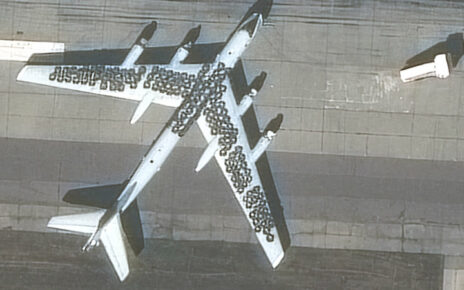Save articles for later
Add articles to your saved list and come back to them any time.
Despite an attempted coup, the stuttering invasion of Ukraine and heavy resulting losses, Putin and his regime are still secure in the Kremlin. This is testimony to his enduringly strong grip on Russia – autocracies, after all, function differently.
But it is also thanks to the support, or at least inertia, of the majority of Russian people.
Vladimir Putin is doubling down on Putinism at home.Credit: Reuters
Putin’s 24 years in power have been defined by a social contract struck with the Russian people: his citizens would be granted stability and security in exchange for keeping out of politics. This unspoken agreement was predicated on the fact that, for many, the hardships of the Soviet Union and the turbulence of the 1990s are still very much in living memory. Few Russians wanted a return to that.
The invasion of Ukraine presented a great test of this social contract for the Kremlin: with young Russian men being sent to die at the front, and people forced to make a great many sacrifices at home, would it hold?
Remarkably, the answer so far has, on the whole, been yes.
This is in large part due to the social and cultural isolationism Putin began to cultivate long before last year’s invasion. It was encapsulated quite neatly in the retaliatory food import ban he introduced in 2014 on produce from countries including the EU and the US, in response to sanctions they brought in against Russia following the invasion of Crimea. The message to Russians was: “We can get by just fine without them.”
The Kremlin has been running an aggressive propaganda campaign to justify its actions to its citizens.
Now, Russia is sinking deeper into the quagmire of Putinism, and there are few signs that the population is resisting the path the president is leading them down.
Polling by the Russian independent pollster Levada Centre revealed that, in July, approval of Putin amongst Russians stood at 82 per cent. Three-quarters of those surveyed said they supported the actions of the Russian army in Ukraine.
It is no coincidence that the highest level of support for the Russian army came from those who trust television (platform to the most rabid pro-Kremlin rhetoric) as their biggest news source (86 per cent).
The Kremlin wants compliance not only from its adult citizens. In two weeks, Russian children will start the new school year with a revamped curriculum designed to give them a “patriotic” education. They will be issued with new textbooks teaching them about the “special military operation” and be taught how to handle Kalashnikovs, grenades and drones.
Anecdotal reports suggest there are plenty of teachers more than happy to facilitate this dissemination of the Kremlin’s world view, indoctrinating a new generation of cannon fodder in an isolationist, jingoistic mindset. Undoubtedly, this brainwashing will make it all the more difficult to “de-Putinise” Russians once the president and his regime are gone from power – whenever that may be.
Many have been concerned about more radical military officials taking over, but less has been said about the potential of a more radical generation beneath. For the West, it could take decades to win over the hearts and minds of this generation and avoid more devastating conflict.
This is not to say that there is no hope. Persistent drone attacks on Moscow since May have succeeded in partially chipping away at morale: Russians have started to question more directly the image of Putin as their great protector – even if the Kremlin has tried to spin the narrative, hammering the line that Ukraine, and not Russia, is the aggressor.
Next March, Russia is due to hold presidential elections. With vote-fixing guaranteed to take place, it is hardly controversial to predict that Putin will win. In unguarded comments recently, Kremlin spokesman Dmitry Peskov admitted as much.
We don’t yet know who the Russian leadership will conjure up to play the part of Putin’s opponents. But the president knows that his survival depends on winning a war that can only go on for as long as the people support it.
Putin is likely to play on the fears he has stoked to win those votes genuinely cast in his favour: “Vote for me or we, Russia, face obliteration.”
How long people will continue to swallow his lie remains to be seen; the world will be watching when the man who considers himself a tsar inevitably declares himself president for a fifth term.
Telegraph, London
Get a note directly from our foreign correspondents on what’s making headlines around the world. Sign up for the weekly What in the World newsletter here.
Most Viewed in World
From our partners
Source: Read Full Article



